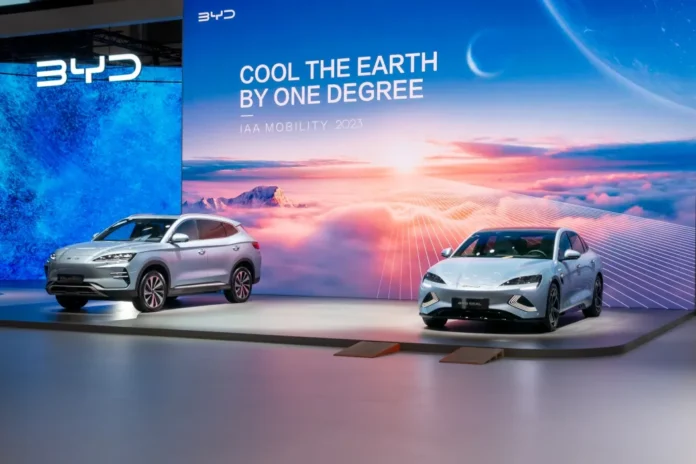Leading Chinese carmaker BYD reported on Wednesday a 24.4 percent increase in net profit for the first half of 2024, driven by the domestic and international markets’ ongoing high demand for electric vehicles.
The company reported a $1.91 billion net profit for the January–June quarter, compared with a $1.54 billion profit during the same period the previous year, per figures released at the Hong Kong Stock Exchange, where BYD is traded. The company’s net profit for the January–June quarter increased to $1.91 billion from $1.54 billion in the corresponding period of the previous year, as reported in data released at the Hong Kong Stock Exchange, where BYD is traded.The company reported $42.3 billion in sales at that time, a 15.8% increase from the previous year.

BYD EV Top Sales
The company, situated in Shenzhen, has adopted the English tagline “Build Your Dreams” and is the most well-known electric vehicle manufacturer in China, which is the largest automotive market in the world.
Beijing’s top officials hope that by 2035, the majority of cars sold will be electric and hybrid vehicles. After generous government subsidies helped sales take off, the policies were tapered away in late 2022, and the market now seems to be maturing. In July, these vehicles accounted for more than half of all domestic sales, crossing the barrier for the first time.
Since then, local EV companies have been embroiled in a fierce price battle to maintain their competitiveness, which has a negative impact on their profitability.as stated by the Automobile Manufacturers Association of China. According to the filing, BYD has “effectively dealt with challenges brought by intensified industrial competition”.
Despite worries in Western nations that local markets may be overrun by imports at what they perceive to be unfairly cheap prices, BYD and other Chinese electric vehicle manufacturers have increased their international expansion in recent years. Beijing’s car subsidies, according to the European Union, have unfairly benefited Chinese companies in overseas markets, distorting the market and hurting European automakers’ ability to compete.Brussels unveiled a draft plan earlier this month to levy tariffs on Chinese electric vehicles (EVs) of up to 36.3%; if a solution is not struck with Beijing, the policy will become permanent in October.
In May, the US announced that customs tariffs on Chinese electric vehicles would be increased to 100%.


